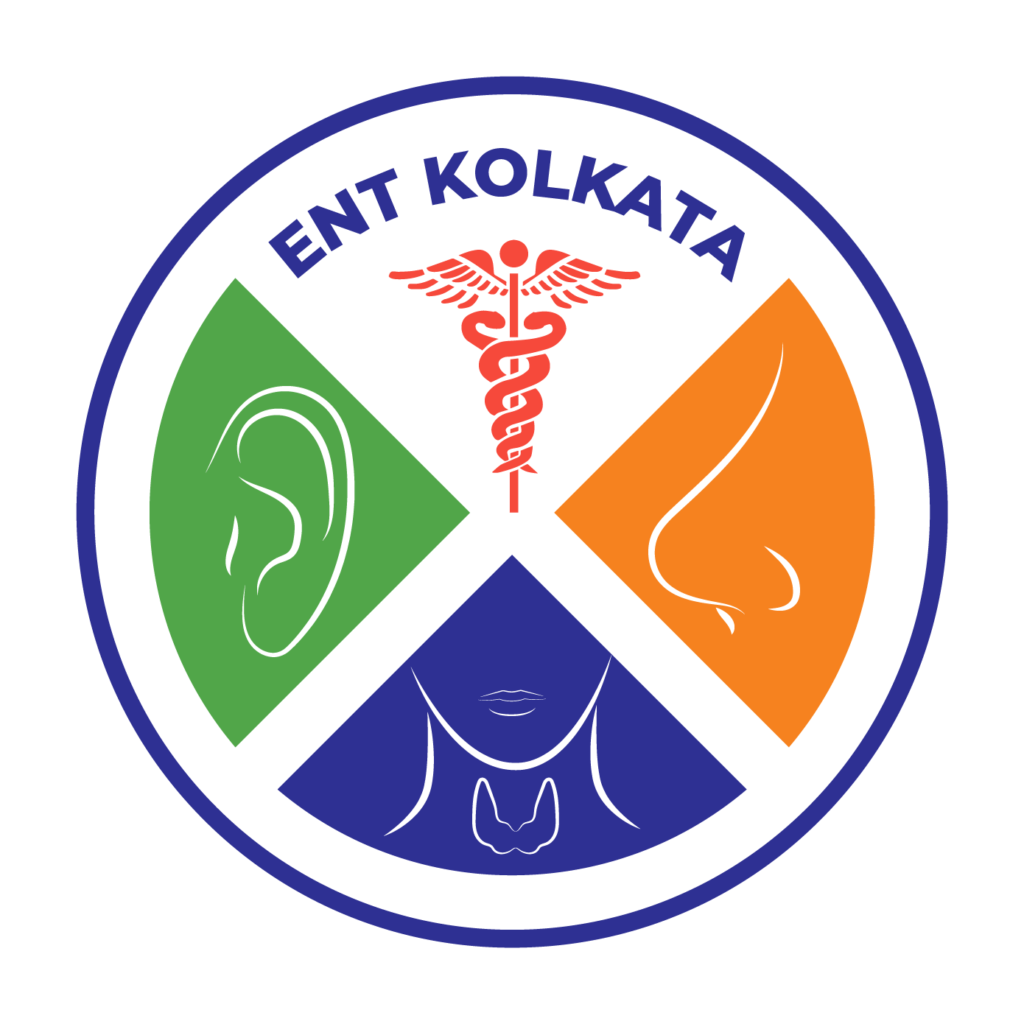Nasal allergies and breathing difficulties affect millions of people, significantly impacting quality of life through symptoms that interfere with sleep, work, and daily activities. Understanding these conditions and seeking appropriate care from an ENT Clinic in Kolkata helps patients find relief and improve their well-being.
Understanding Allergic Rhinitis
Allergic rhinitis occurs when the immune system overreacts to airborne substances, triggering inflammation in the nasal passages. Common triggers include pollen, dust mites, mold spores, and pet dander. The nasal lining becomes swollen and produces excess mucus in response to these allergens.
Seasonal allergic rhinitis, often called hay fever, occurs during specific times when particular plants release pollen. Perennial allergic rhinitis causes symptoms throughout the year from indoor allergens like dust mites and mold. Some people experience both types, suffering from year-round symptoms with seasonal worsening.
Common Symptoms of Nasal Allergies
Nasal congestion represents one of the most bothersome symptoms, making breathing through the nose difficult. This congestion often worsens at night, affecting sleep quality. Clear, watery nasal discharge flows frequently, requiring constant tissue use.
Sneezing occurs repeatedly, sometimes in rapid succession. Itching affects the nose, eyes, throat, and roof of the mouth. Postnasal drip causes mucus to drain down the back of the throat, triggering throat clearing and cough.
Eye symptoms include redness, itching, and watering. Dark circles under the eyes develop from chronic nasal congestion affecting blood flow. Fatigue results from poor sleep quality and the body’s ongoing immune response.
Reduced sense of smell affects enjoyment of food and ability to detect important odors. Ear pressure and facial discomfort sometimes accompany nasal allergy symptoms. An ENT Specialist Doctor in Kolkata evaluates these symptoms to confirm diagnosis and recommend treatment.
How Nasal Allergies Affect Overall Health
Chronic nasal congestion forces mouth breathing, which dries the throat and increases risk of dental problems. Poor sleep quality from nasal obstruction leads to daytime fatigue, difficulty concentrating, and reduced productivity at work or school.
Sinus infections develop more easily when nasal passages remain congested and drainage is impaired. The connection between the nose and ears means that nasal congestion can cause ear pressure and discomfort. Chronic inflammation sometimes triggers asthma symptoms in susceptible individuals.
Quality of life suffers significantly when symptoms persist untreated. Activities like exercise become more difficult with impaired nasal breathing. Social interactions may be affected by constant sneezing and nose-blowing. Effective treatment from an ENT Clinic in Kolkata addresses these impacts.
Identifying Specific Allergen Triggers
Understanding what triggers allergic symptoms helps in avoiding exposure and targeting treatment. Pollen from trees, grasses, and weeds causes seasonal symptoms. Different plants pollinate at different times, explaining why symptoms may vary by season.
Indoor allergens include dust mites that thrive in bedding, upholstered furniture, and carpets. Mold grows in damp areas like bathrooms and basements. Pet dander from cats and dogs triggers reactions in many people, even if pets are kept outdoors.
Cockroach droppings in urban environments can trigger allergic reactions. Some people react to specific foods that cause cross-reactions with airborne allergens. Occupational exposure to chemicals, dust, or other substances causes symptoms in workplace settings.
Allergy testing performed at an ENT Clinic in Kolkata identifies specific triggers. This information guides treatment recommendations and avoidance strategies. Skin prick testing or blood tests measure allergic response to various substances.
Non-Allergic Causes of Nasal Symptoms
Not all nasal congestion and discharge results from allergies. Vasomotor rhinitis causes similar symptoms triggered by irritants, temperature changes, or strong odors rather than allergens. This condition requires different treatment approaches than allergic rhinitis.
Structural problems like deviated nasal septum create chronic obstruction and breathing difficulty. Nasal polyps, soft growths in the nasal passages, block airflow and impair drainage. Certain medications, particularly some blood pressure medications, cause nasal congestion as a side effect.
Hormonal changes during pregnancy sometimes cause nasal congestion. Overuse of nasal decongestant sprays leads to rebound congestion that worsens when the medication wears off. Thyroid disorders occasionally affect nasal function.
Proper diagnosis by an ENT DR in Kolkata distinguishes between these various causes. Physical examination, nasal endoscopy, and appropriate testing reveal the underlying problem. Accurate diagnosis ensures treatment addresses the actual cause rather than just symptoms.
Medical Treatment Options
Nasal corticosteroid sprays reduce inflammation in nasal passages and provide effective symptom relief. These medications require consistent daily use to achieve full benefit. They work best when started before allergen exposure begins.
Antihistamine medications block the chemical signals that trigger allergic symptoms. Newer antihistamines cause less drowsiness than older versions. Some antihistamines come in nasal spray form, providing targeted relief at the site of symptoms.
Decongestants temporarily reduce nasal congestion by constricting blood vessels in nasal tissues. However, these medications should only be used short-term to avoid rebound congestion. Oral decongestants sometimes cause side effects like elevated heart rate or blood pressure.
Leukotriene inhibitors block different chemical pathways involved in allergic reactions. These medications work well for some patients, particularly those who also have asthma. Nasal saline irrigation flushes allergens and mucus from nasal passages, providing relief without medication side effects.
Immunotherapy gradually reduces allergic response through regular exposure to small amounts of allergen. This treatment comes in injection form or sublingual tablets. An ENT Surgeon in Kolkata can recommend whether immunotherapy would benefit specific patients.
Lifestyle Modifications and Avoidance Strategies
Reducing allergen exposure lessens symptom severity and medication needs. Using allergen-proof covers on mattresses and pillows reduces dust mite exposure. Washing bedding weekly in hot water eliminates allergens.
Keeping windows closed during high pollen seasons prevents outdoor allergens from entering the home. Using air conditioning with high-efficiency filters improves indoor air quality. Removing carpets and heavy curtains reduces places where allergens accumulate.
Showering and washing hair before bed removes pollen collected during the day, preventing transfer to bedding. Keeping pets out of bedrooms reduces dander exposure during sleep. Using dehumidifiers maintains humidity levels that discourage dust mites and mold growth.
Avoiding outdoor activities during peak pollen times, typically early morning, reduces exposure. Wearing sunglasses outdoors helps protect eyes from pollen. Rinsing nasal passages with saline solution after outdoor exposure removes allergens.
When Nasal Problems Require Surgical Intervention
Some patients benefit from surgical procedures when medical treatment provides insufficient relief. Correction of deviated nasal septum improves airflow and allows better medication delivery to nasal tissues. This procedure, called septoplasty, typically takes place on an outpatient basis.
Removal of nasal polyps restores breathing and reduces sinus infection risk. Polyps tend to recur, so ongoing medical management continues after surgery. Turbinate reduction decreases the size of structures inside the nose that become swollen with allergies.
Endoscopic sinus surgery addresses chronic sinus problems that contribute to nasal symptoms. Opening blocked sinus passages improves drainage and reduces inflammation. An experienced ENT Specialist Doctor in Kolkata evaluates whether surgical intervention would benefit individual patients.
Surgical procedures use minimally invasive endoscopic techniques when possible. This approach reduces tissue trauma and promotes faster recovery. Most patients notice significant improvement in breathing and symptom control following appropriate surgical intervention.
Impact of Environmental Factors
Air pollution significantly affects nasal health, triggering inflammation even in people without true allergies. Urban environments with heavy traffic create constant exposure to irritating particles. Industrial emissions contribute to poor air quality affecting respiratory health.
Indoor air quality matters as much as outdoor air. Cleaning products, air fresheners, and personal care products release chemicals that irritate nasal passages. Cigarette smoke causes severe irritation and inflammation, worsening allergy symptoms significantly.
Climate factors influence allergen levels and nasal health. High humidity promotes mold growth and dust mite proliferation. Dry air irritates nasal tissues and thickens mucus. Temperature fluctuations trigger vasomotor rhinitis symptoms in susceptible individuals.
Seasonal changes bring different challenges. Monsoon season in Kolkata increases indoor mold growth and outdoor fungal spores. Summer heat may increase outdoor allergen levels. An ENT Clinic in Kolkata helps patients prepare for seasonal challenges with appropriate preventive strategies.
Special Considerations for Different Age Groups
Children with allergic rhinitis require special attention as symptoms affect growth, development, and learning. Chronic mouth breathing in children can affect facial development and dental health. Poor sleep from nasal obstruction impacts behavior and academic performance.
Nasal allergies in children sometimes precede development of asthma, making early treatment important. Parents should observe for symptoms like frequent nose-rubbing, snoring, or dark circles under eyes. An ENT Clinic in Kolkata provides pediatric expertise for young patients.
Adults with long-standing allergies may develop tolerance to symptoms, not realizing how much their quality of life has diminished. Treatment can significantly improve well-being even after years of symptoms. Workplace productivity often increases with effective allergy management.
Older adults may experience medication side effects more readily, requiring careful medication selection and monitoring. Nasal dryness becomes more common with age, complicating allergy management. Regular follow-up ensures treatment remains appropriate as needs change.
The Connection Between Nasal Health and Sleep
Nasal obstruction significantly impacts sleep quality. Mouth breathing during sleep increases snoring and risk of sleep apnea. Poor sleep affects daytime alertness, mood, and overall health.
Chronic sleep disruption from nasal congestion contributes to fatigue, difficulty concentrating, and increased accident risk. Children with sleep disruption from nasal problems may develop behavioral issues or learning difficulties. Adults experience reduced work productivity and quality of life.
Treating nasal congestion often dramatically improves sleep quality. Many patients report feeling more rested and energetic once breathing improves. An ENT DR in Kolkata evaluates how nasal problems affect sleep and recommends appropriate interventions.
Sleep position modifications help some patients breathe better at night. Elevating the head reduces nasal congestion. Using a humidifier maintains comfortable humidity levels that prevent nasal dryness. These simple measures complement medical treatment.
Understanding the Role of Comprehensive ENT Care
Nasal allergies and breathing problems benefit from specialized expertise in otolaryngology. An ENT Surgeon in Kolkata possesses advanced training in diagnosing and treating the full spectrum of nasal conditions. Access to specialized diagnostic equipment ensures accurate evaluation.
Comprehensive care addresses not just immediate symptoms but underlying causes and contributing factors. Treatment plans consider individual circumstances, triggers, and lifestyle factors. Regular monitoring allows adjustment of treatment strategies as needed.
Patients with complicated nasal problems, structural abnormalities, or treatment-resistant symptoms particularly benefit from specialized care. The multidisciplinary approach available at an ENT Clinic in Kolkata ensures comprehensive management. This coordinated care produces better outcomes than fragmented treatment approaches.
Long-Term Management and Patient Education
Successful allergy management requires ongoing attention rather than one-time treatment. Regular follow-up appointments monitor symptom control and treatment effectiveness. The ENT Doctor in Kolkata adjusts medications based on seasonal variations and patient response.
Patient education forms an essential component of successful management. Understanding triggers, proper medication use, and environmental control measures empowers patients to participate actively in their care. This collaborative approach typically produces better outcomes.
Keeping a symptom diary helps identify patterns and triggers. Recording symptom severity and medication use provides valuable information for treatment optimization. Noting environmental factors and activities when symptoms worsen reveals specific triggers.
Some patients experience good control for extended periods, then symptoms return. Understanding that allergies can change over time helps patients recognize when treatment adjustments become necessary. Maintaining open communication with healthcare providers ensures concerns receive prompt attention and symptoms remain well-controlled for optimal quality of life.
